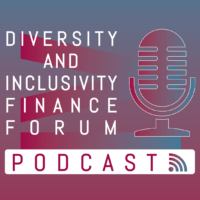
Speaking on the Diversity and Inclusivity Finance Forum (DIFF) podcast, when asked about any hurdles he faced as a black man with a senior role in the finance sector, Wager said due to social changes over time, he no longer sees any obstacles.
“In an organisation like Barclays, and I suspect any organisation of this kind of size and reputation, life has to be about being a meritocracy, it genuinely has to be. And if there’s anything overt that is unfair, there are the right mechanisms to deal with that,” Wager said.
He said many companies had since established initiatives of zero tolerance towards discrimination.
Wager added: “It’s maybe not so much about hurdles, but I think everyone has become more aware of the unconscious bias that might exist.
“It’s the unconscious bias and microagression element that we need to be more mindful of because I don’t think it’s necessarily about the overt.”
A microagression is an action or statement which could be seen as discrimination against someone in a covert or unintended way.
Wager said: “Those are the things we need to think about if we talk about hurdles, because we all have unconscious bias, but it’s a filter that you apply to your thinking that really genuinely helps you get through that and over that. And I think that’s as individuals and as organisations.”
He said this included “challenging employing in your image,” where a recruiter might favour a potential employee because they have a similar race, class or educational background.
Wager added: “That’s a conundrum I suspect many are struggling with and it’s not necessarily unique to this industry.”
Martin Reynolds, chief executive of SimplyBiz, said part of the problem was the industry operated with a view of “short-termism” and tended to react to calls for diversity rather than plan ahead.
He said the finance sector was too quick to look internally when trying to fill a vacancy and suggested forming connections outside of the sector to build up a pool of candidates with transferable skills.
Reynolds added: “Sometimes we may consciously or unconsciously think actually ‘we do need to widen the diversity in a team, in a company’ and we just take from within the industry. So we’re not actually growing the diversity within the industry, people are just moving around.
“We need to try and break that cycle.”















